BLOG
Find support not just for emotional eating, but all aspects of your well-being.
Set Goals with Self-Compassion
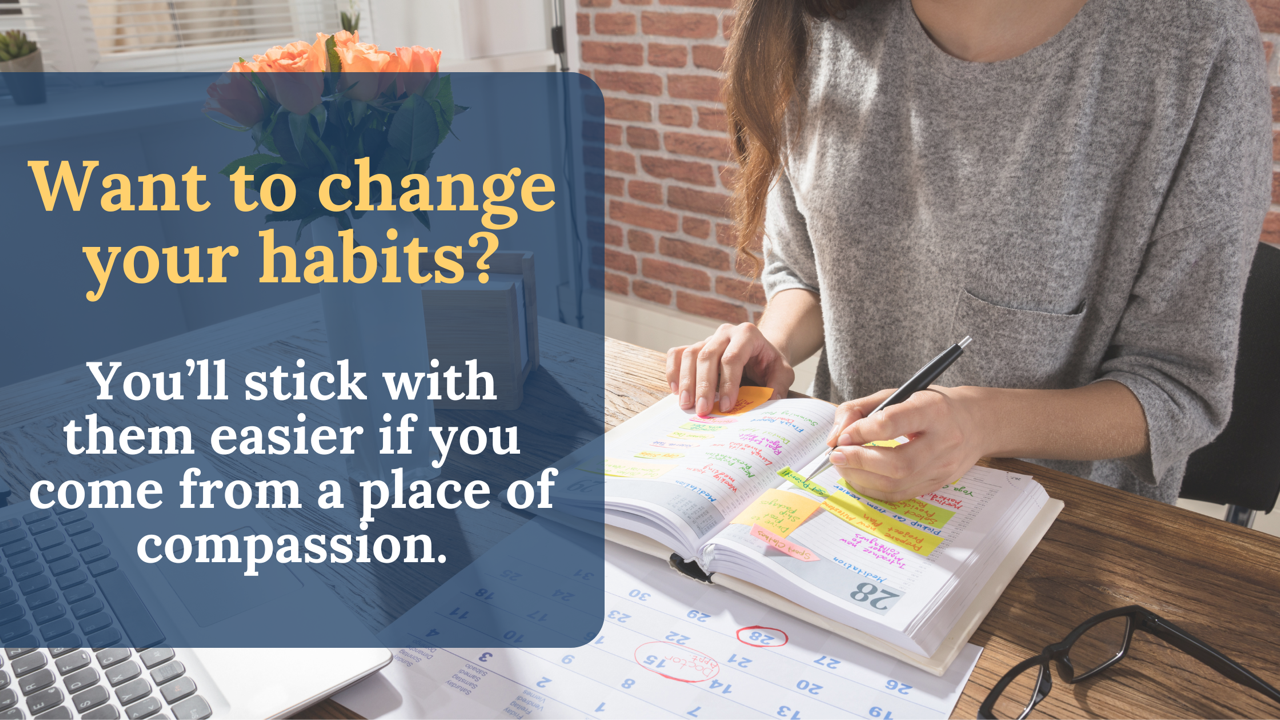
With the start of a new week, month, or year, it can be tempting to overhaul your life. This might look like starting a new diet, adhering to an intense exercise regime, doing a detox, or trying to white-knuckle your way to change.
How often have you tried this approach?
It isn’t a bad thing to want to change your habits, but how often does your motivation start out from a place of criticism or feeling not good enough? You can’t hate yourself towards change. Instead, coming from a place of compassion is a great way to soothe and support yourself!
Consider The Words You Use
When coming from a place of compassion, you don’t tear yourself down by picking apart your body or criticizing your abilities. This inner critic can be really mean! You can start by asking these two helpful questions when this inner voice gets loud. The next step is to start changing the words you use to talk about yourself. It doesn’t have to be fake or super positive, you can aim for neutral comments like “I am...
Befriending Your Inner Critic
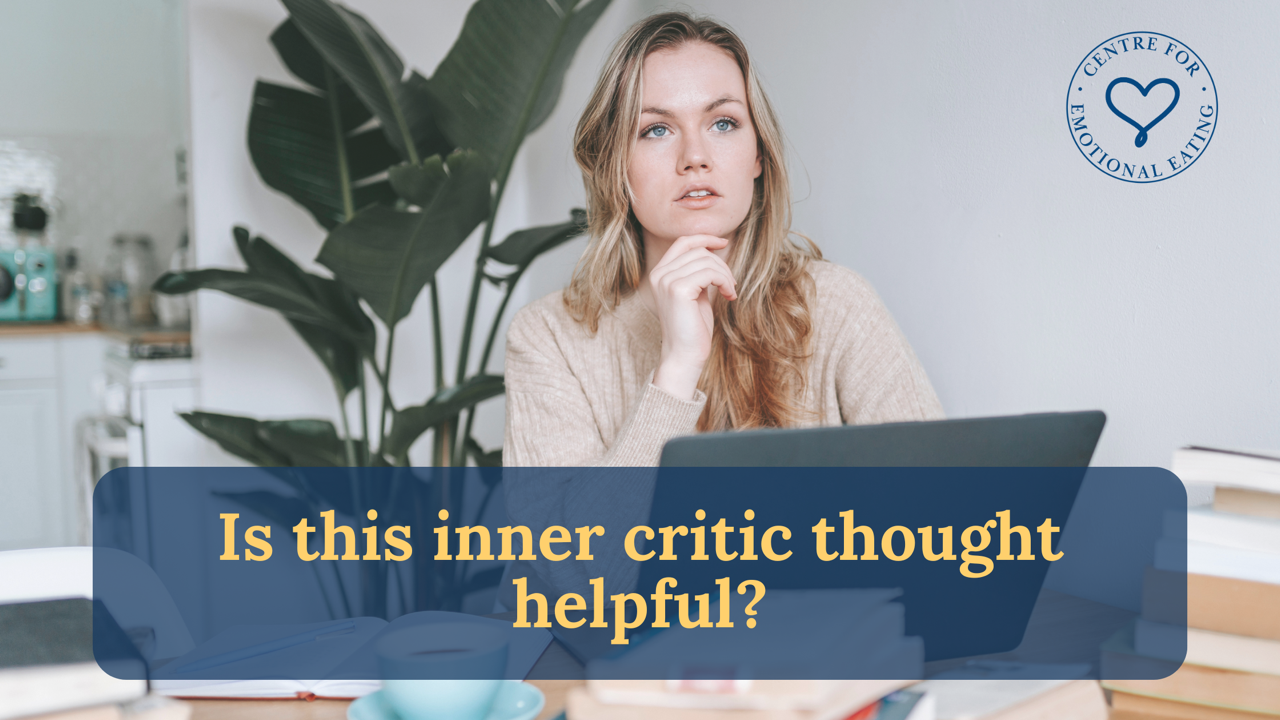
Managing your inner critic can be difficult. Its comments are cruel, judgmental, and criticize everything from your body to your intelligence to your dreams. That voice inside tears you down with comments taken from friends, family, society, and social media. Sometimes they are word-for-word and sometimes your inner critics twists them to be extra painful. We tend to internalize these negative ideas and our brain feeds them back to us as if they are true.
They aren’t.
There are a few ways to address your inner critic. I’ve talked before about how to push back against these inner comments (without falling into toxic positivity!) and today I want to give you another strategy to try out: listening to your inner critic.
Now, that doesn’t mean believing your inner critic. When thoughts like “You’re so dumb” or “No one likes you” come up, see if you can sit with them for a moment. These thoughts often jump to the surface when you’ve been triggered by a situation and your immediate action ...
Food Noise Explained: Why It Happens and How to Find Peace with It
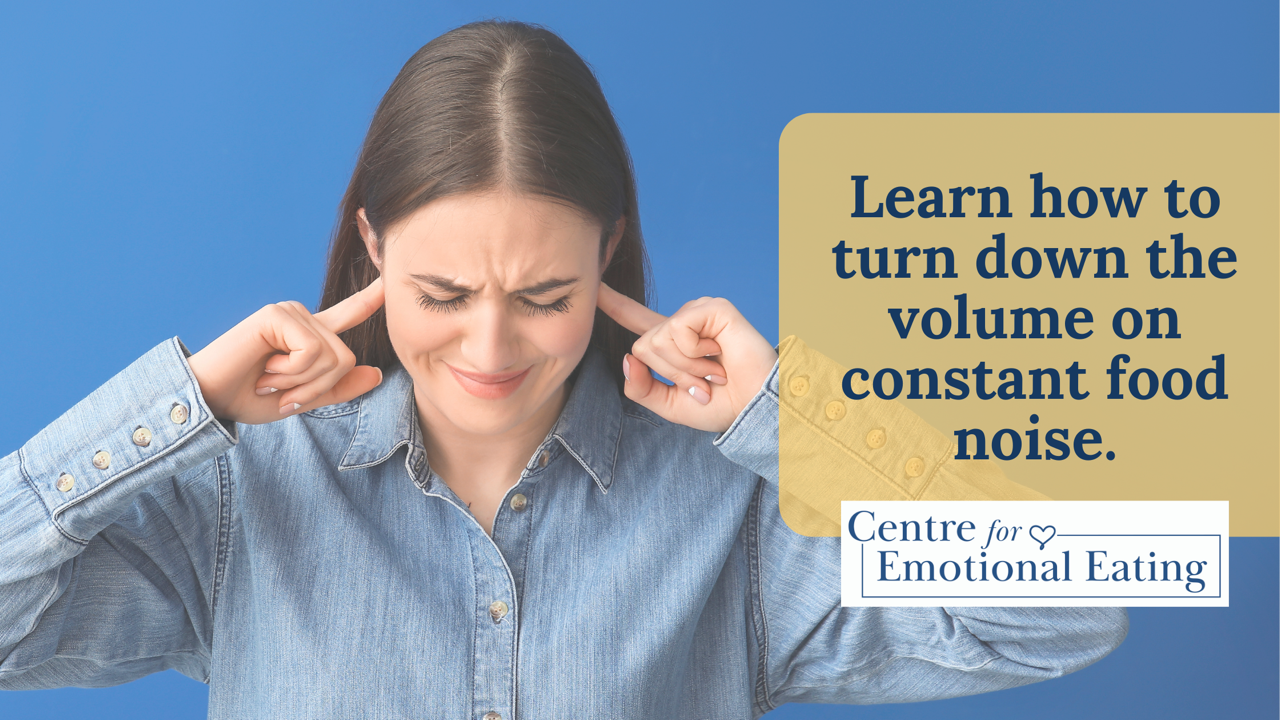
It is common to think about food: what you have to pick up at the grocery store, your weekend dinner out with friends, or even if you want a pastry to go with your coffee.
But when your mind is running a constant dialogue focused on your next meal or snack, how much and when you’ll eat, chances are you’re experiencing food noise. You might have come across this term online, so today we’re breaking down why you can’t stop thinking about food and what to do about it.
What is food noise?
We can define it as a preoccupation with food before, during, and after you eat—so all the time! This can come in the form of questions or criticisms. Do any of these sound familiar?
- “I just ate but I’m still hungry. I shouldn’t eat any more, but I kind of want more potatoes, they were so creamy, probably full of butter…”
- “I have ice cream in the freezer. I shouldn’t eat it. I want it. I’m going to eat it. That was so good, what more can I have? I’ve already had the ice cream, I’ve blown it, I’ll j ...
Summertime Depression: Seasonal Affective Disorder is a Year-Round Experience

You might have heard of, or experienced, seasonal affective disorder (also known as SAD) during the colder months of the year. Common symptoms of SAD are irritability, changes to your sleep patterns or the way you eat, and worsening of anxiety or depression. If you’re reading that and thinking “that sounds familiar” but it is the Summer and you dismiss your symptoms, we’re here to tell you that SAD can also happen during the sunnier, warmer months.
Our brains and bodies like routine: it makes things feel in control and predictable. So, any time there are changes introduced—like hotter weather, later sunsets, or change to homelife—it is understandable that our system would react in a certain way, no matter if it is Winter or Summer. There are a number of reasons why Summer SAD can happen, but here are two big ones:
Day-to-Day Disruptions
You might be planning vacations (hello travel stress!) which can add to your mental load or are having to navigate having kids home on school break....
Emotional Eating Toolkit: Creating a Comfort Box
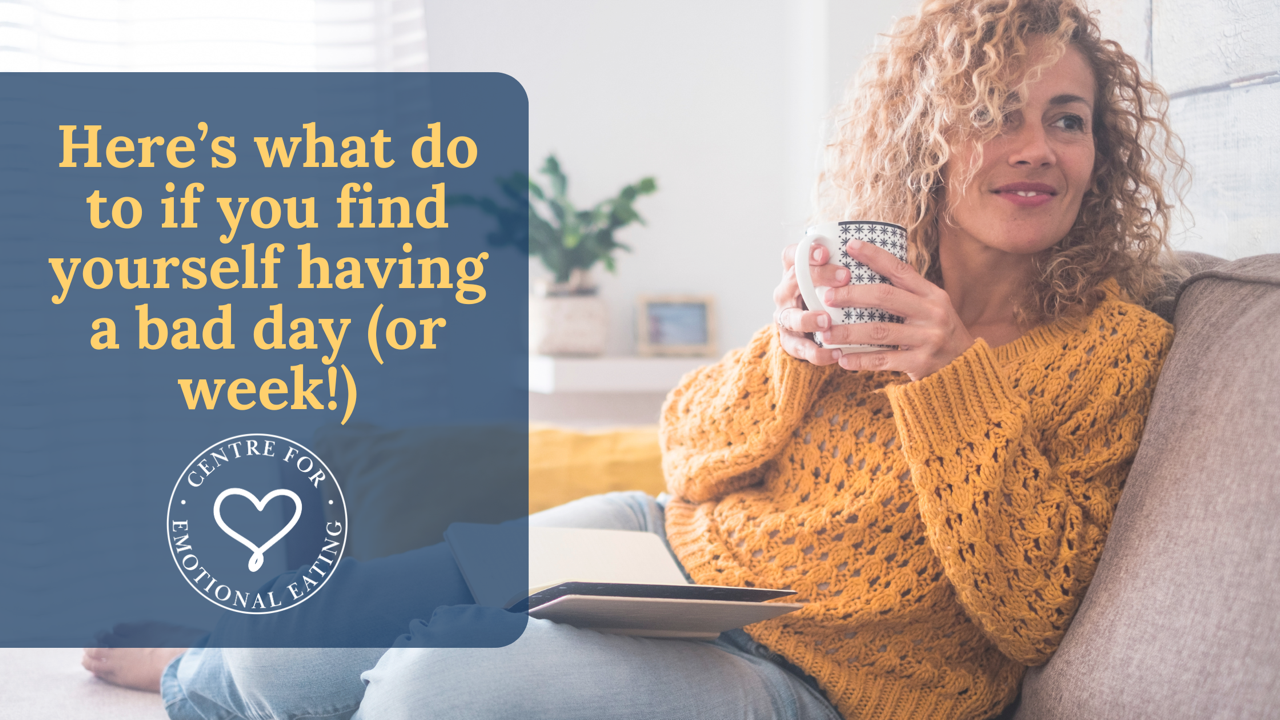
We all have bad days (heck, even weeks!) where we feel drained, angry, or even upset most of the time. If this comes up for you, it is time to create a comfort box. This can be a great resource to build yourself back up when you’re feeling low.
Here’s how to do it:
The next time you’re feeling in a good place, put together a physical box or digital list that has things that bring you comfort when your mood is low. You can include:
- A playlist or movie that lifts you up (or helps you cry). This could be either to pump up your energy or create an emotional release. It can sometimes be difficult to allow ourselves to cry when we’ve been holding it together for so long; we often judge ourselves less when we’re crying over a fictional character.
- A candle you’ve always wanted to burn or a face mask you’re wanted to try. Often, we keep certain things for a “special occasion”, but why wait! Being able to indulge in little luxuries might just give you the small boost you’re looking for (in ...
Client Insight: “It felt scary when therapy started to change how I saw myself and others.”
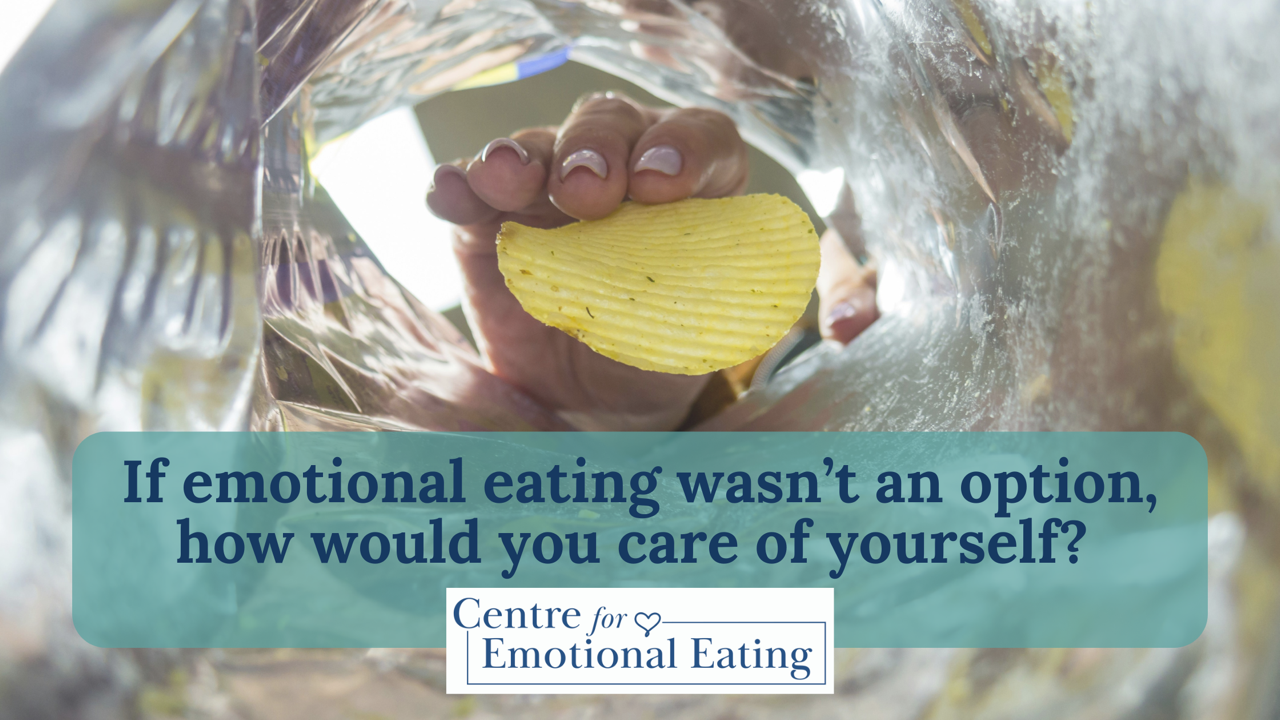
Doing the work in therapy often comes with challenging the stories you’ve always told yourself. Over time we solidify ideas about ourselves, our relationships, and the world around us. This can sound like:
“I’m broken.”
“I’ll always be an emotional eater.”
“My mom did the best she could.”
But as you face these narratives about yourself, you’ll start to find the wiggle room, the space to start re-thinking how you see yourself and what that means for your identity. This can feel destabilizing! It is scary if you always thought of yourself or those in your life one way, only to unpack that things are different that they first appeared. It can feel easier to stick with the familiar way you’ve always understood your family and friends, and even yourself.
While this experience is uncomfortable, it is also a great sign that therapy is getting to the root of your experiences. Let’s flip the script: changing how you see the world is like taking off a pair of tinted sunglasses.
Let’s try t...
How to Build Trust in Yourself
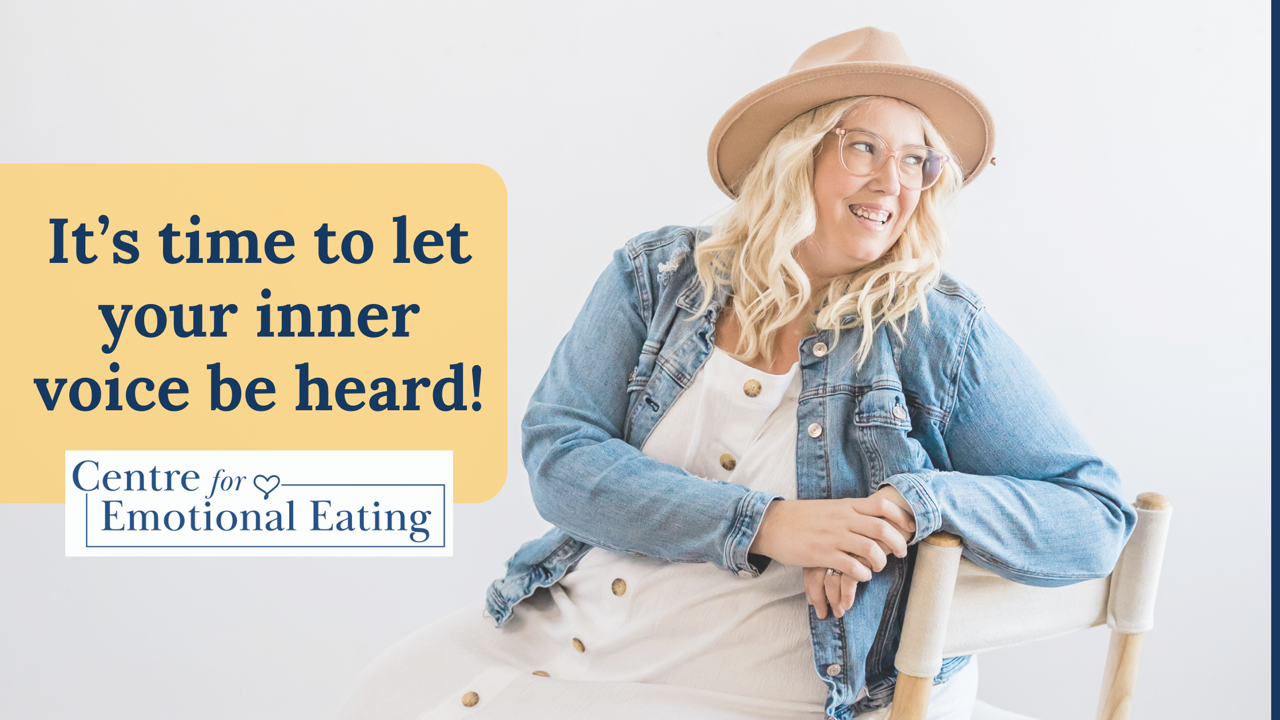
If you’re an emotional eater, you might have spent a lot of your life trying to stick to a diet or workout routine created by someone else only to keep feeling like you fail. This can grind down your sense of self-trust: you keep trying to live by the rules of others, not trusting your inner voice, and you keep feeling like you’re breaking promises to yourself by not following through.
Talk about being stuck in a loop!
It is time to start rebuilding your self-trust, an inner knowing that you are capable and have preferences. But how can you do that if you’ve been ignoring your inner voice for so long? Try thinking about how you support the people in your life who you love and then apply it to yourself. You might find that it feels easier to trust and show up for others than it is to show yourself the same level of support and compassion.
Here are a few specifics to think about:
Keep a promise to yourself. Start off with little things like setting the intention to brush your teeth b...
Why We Engage in Self-Sabotage Behaviour
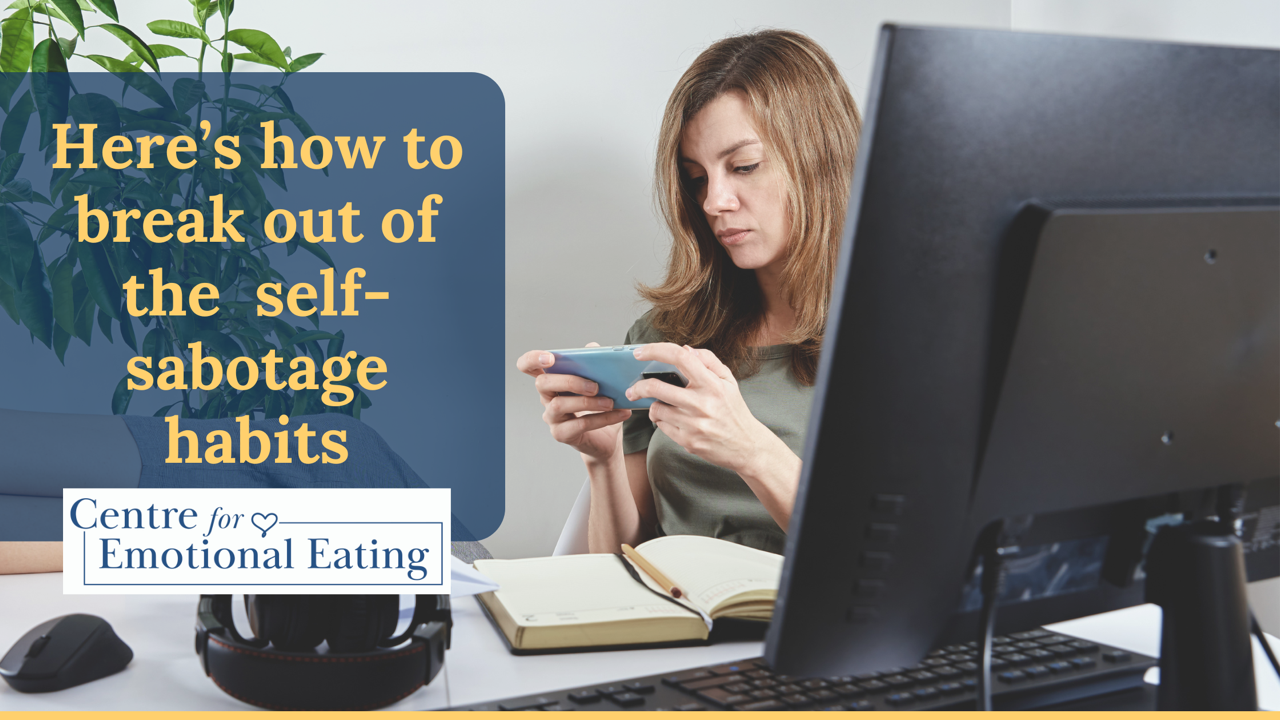
Self-sabotage is a sneaky habit that is getting in the way of, well, yourself! You might have recognized your patterns, even be aware it doesn’t make you feel good, but feel helpless to stop the action. Self-sabotage keeps you feeling stuck because there is familiarity in the outcome. Yes, it might leave you feeling shame or overfull but it feels safe.
Self-sabotage behaviour can look like:
- Perfectionism. Needing everything to be perfectly aligned and ready before taking action. But the truth is “perfect” doesn’t exist, meaning you’ll never end up taking that step forward.
- Procrastination and avoidance. It is easy to pick up our phones and scroll or focus on what foods we want to binge on as a way to numb out rather than face something.
- Constant self-doubt and criticism. This can be feeling like you never measure up or that you can’t possibly meet your goals, so why even try.
These patterns of self-sabotage show up not just around a fear of failure, it can also come up as a fe...
How to Avoid the Social Media Comparison Trap

Social media constantly gives us benchmarks to compare ourselves to.
Your Instagram and TikTok feeds are filled with picture-perfect videos and photos of happy kids, clean houses, and expensive vacations. These platforms are also overwhelmed with weightless “success” stories and details of restrictive diets to try to ‘give’ you the body of the influencer posing on the screen.
It’s tough not to get caught up in these images! It’s true that a picture is worth a thousand words, so even before reading the caption or hearing what they’re saying, the image they are projecting is perfection. They are trying to sell you on the idea that if you buy this, do that, you can look just like them, have a life just like theirs.
Talk about a comparison that is only going to make you feel bad about yourself.
But this slim slice we see of others online—a highlight reel—is no yardstick for your own messy, beautiful life!
Here’s the solution to social media comparison:
- You’ve probably heard this be ...
Why You Shouldn’t Fear Change

One of the interesting (and powerful!) things of becoming an adult is realizing that you can continue to evolve as you age. It is through discovering new parts of ourselves—likes/dislikes, values, and desires—we start to grow into a new version of our identity.
The more time you can spend doing things that make you feel good—work that is fulfilling, friendships that support you, movement that revitalizes you, clothing that reflects your aesthetic—the less you are likely to reach for food to fill those needs. You’ll never be able to do away with all the unpleasantness of life (bills need to be paid), but having things you look forward to can help ease emotional eating when these stressors do come up because you have something positive to rely on.
But all this personal growth, leaning more into and learning more about yourself, can feel both comforting (you’re not stuck!) and destabilizing (it feels new and overwhelming). You might notice feelings of sadness or grief crop up as who you...


